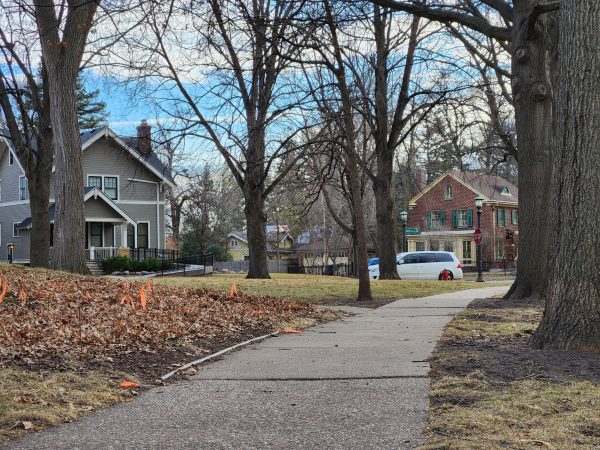Dr. Edward Duffield Neill and Macalester College
December 5, 2019
Greetings All! I have read with great interest the brief statement with regard to the board’s decision to remove Dr. Neill’s name from the Humanities Building and the room at Weyerhaeuser Hall. I respect the prerogative of our trustees to decide on issues of such import. However, as one citizen of the college, I would like to share my strong dissent over the decision. I have two reasons for my judgment:
It was relayed to us that long-publically-available but only recently reviewed documents underscore Dr. Neill’s racist perspective and — “dehumanizing” —pronouncements. He shared of course such characteristics with the vast majority of white Americans of his epoch.
Our college is right to take stock of this old but freshly examined evidence and respond appropriately. Still, I hold that his precious and durable bequests to us, to our state and to the country are as weighty as those sins. I wonder then, when — if ever — do transgressions get discerningly confronted with the highly positive impact that an individual’s actions might have on the longue durée?
Do partial imperfections, as severe as they might have been, forever determine an individual’s full work on the world, regardless of their contrary deeds and their subsequent ramifications? In this light, the board’s decision was incomplete, and may diminish us.
I am sharply aware of both of the dead weight of past racist acts and the excruciating pain of their current versions. The latter are characterized by the rise of blatant and violently bigoted actions and the subsequent emergence of reactionary policies. No doubt, all of us resiliently resist all that, and, correlatively, must imagine and live a drastically different vision of genuine civic solidarity.
Most of our college’s culture in the twentieth and now the twenty-first centuries enacted such admirable consciousness. I am proud of this character of Macalester. That said, after 26 years of practicing the vocation here, I have this concern: we seem to be sliding deeper into what David Reiff has recently called “ideological deafness.”
This entails an embrace of rigid close-mindedness, avoidance of counter arguments and evidence or, worse, instinctive antipathies towards differences beyond narrowly prescribed grooves. That standpoint denudes the hard and ennobling work of exercising enlightening and progressive praxis. This situation is at once sad and dangerous for us, as it has always been for a cosmopolitan republic of letters. More specifically, such a mentalité corrodes the cardinal purpose of our college: to set up a welcoming intellectual atmosphere whose dual trademark is the continuous cultivation of equably holding the scales of critical judgment, and the love of wisdom. This is the essence of the perpetual challenge of liberal learning, requiring courage, delicate appraisal and judiciousness.
While I have not seen the full record of Dr. Neill’s racist statements, I am not surprised at all that his views of our Native American compatriots were highly offensive and hurtful. Still, there is hardly an iconic leader, here in the U.S. or beyond, who, in re-examination, was an impeccable saint.
This group of towering but blemished individuals includes such figures as George Washington, Thomas Jefferson, Abraham Lincoln, Mahatma Gandhi, Franklin D. Roosevelt, Winston Churchill, several leaders of the celebrated suffragettes such as Elizabeth Stanton and Susan B. Anthony, John D. Rockefeller Jr., Lyndon B. Johnson, Martin Luther King Jr., Malcolm X and Aung San Suu Kyi.
As old Somalis had told the world long ago, “Geed walba in gubta hoos taal”— that is, every tree, no matter how tall, has enough underbrush to burn it.
At this juncture, then, I raise the perennial question: what else needs to be done? I hold that, in the end, Dr. Neill’s bestowal is greater than his liabilities. As we know, he was the first chancellor of the University of Minnesota, founding pastor of House of Hope and First Presbyterian Church and private secretary to Abraham Lincoln in the last years of Lincoln’s life, all before and serving as the first president of our college.
Consequently, we owe him more than we could ever repay. Given that the removal of his name is now the decided price for our atonement, we ought to set up a tangible way to durably memorialize for the ages his grand dream, which we now live, and his extraordinary sacrifice to found this magnificent college.
To get to this challenge, I propose the following two ideas: First, to create, for perpetuity, two full scholarships for high-achieving students entering Macalester. These will carry Dr. Neill’s name. Second, to establish an endowed annual Neill lecture, to be delivered on the eve or late afternoon of Founder’s Day. The lecturer will be chosen the year before and selected from the faculty or an accomplished member of the alumni. The presentation will address aspects of this broad theme: “Macalester and the Call of Liberal Learning.”














Bob Spaulding • Dec 8, 2019 at 8:54 pm
Thank you, Dr. Samatar, for adding some historical perspective to the issue of Dr. Neill’s overall impact. If we obsess over the inevitable imperfections of every historical figure, there will be no one left to celebrate. For example, should Rev. Martin Luther King’s name be removed from all the buildings, streets, and plaques because of recent sordid revelations of his actions? Of course not. Let’s appreciate the totality of each person’s influence and accomplishments.